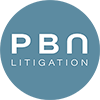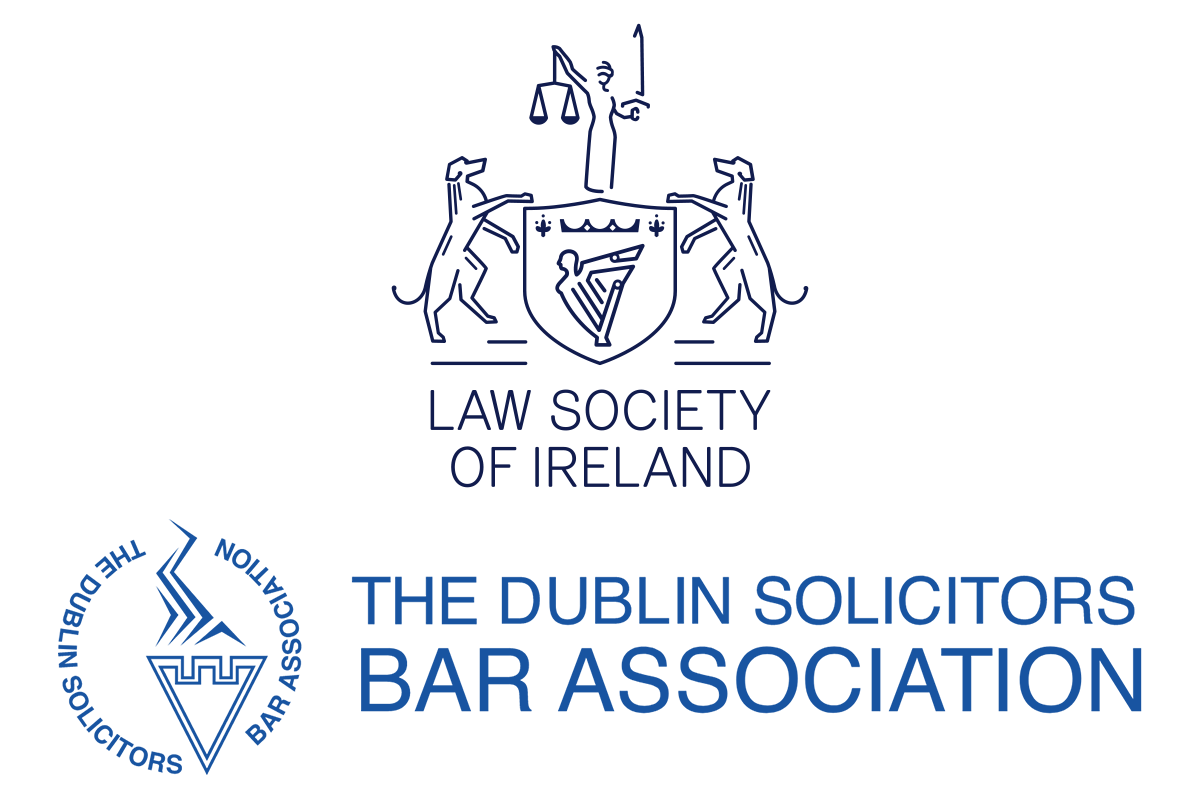If you have suffered injuries in an accident that was not your fault you may be entitled to bring a compensation claim*.
A personal injury like a broken ankle or sprained wrist could have you off work, unable to drive and even care for the family in some cases. A personal injury claim* looks for compensation to cover your extra costs due to an accident that was not your fault.
When making a personal injury claim*, you need an experienced hand on your shoulder. You will need someone to guide you through the process, with the experience to advise you along every step of what can be a complex legal process.
PBN Solicitors have the expertise, and that vital experience in personal injury claims* to be with you throughout the process to get you the compensation you deserve.

Table of content
- What is a personal injury claim*?
- What are the types of personal injury claims* in Ireland?
- A solicitor’s role in a personal injury case
- Injuries Resolution Board
- Compensation for personal injury in Ireland
- How to make a claim* for personal injury compensation
- What are the time limits for making a personal injury claim* in Ireland?
- Start your personal injury claim* today
What is a personal injury claim*?
A personal injury claim* is the legal process you follow in order to get compensation when injured in an accident that was not your fault.
If a third party is negligent in their duty of care and you suffer an accident or injury, you could have a personal injury claim*.
What are the types of personal injury claims* in Ireland?
In Ireland, you can claim* personal injury for workplace injury, road traffic accidents, medical negligence, and many other types of personal injury.
A personal injury may affect you for months, years and even for life in some cases. You make a personal injury claim* against those responsible for the cost of the effects today and in the future.
There are many types of personal injury claims* in Ireland:
Workplace injury
A workplace injury is one in which you get injured through your job. It can be on the factory floor, in the office, in a shop or when working offsite for the company.
Your employer owes you a duty of care when you are at work. They must provide you with a safe working environment.
In addition to the health and safety legislation in existence In Ireland, there is also a common law duty on employers to take reasonable care for their employees’ safety.
An employer’s duty of care comes under four main headings, an employer is obliged to provide his workforce with:
We at PBN Litigation when acting for an injured employee take steps to ensure that they we secure as much evidence as possible before proceeding with their claim* by way of;
1) Immediate Data Access Requests on behalf of the client for CCTV Footage , Accident Report Forms and Personnel file
2) Applications to the High Court pursuant to Section 12 of the PRB Act 2003 seeking immediate orders to grant access to a locus of the accident and preserve the locus pending expert review.
3) Reporting accident to Health and Safety Authority if employee is out of work for more than 3 days , thus forcing the Health and Safety Authority to carry out an investigation into the case.
Workplace personal injuries seen in Ireland:
Road Traffic Accidents
Road Traffic Accidents, RTA, see many personal injury claims* annually in Ireland. If you suffer an injury as a driver, passenger, a pedestrian or when on a bike or motorbike and the accident was not your fault, you could have an RTA injury claim*.
Some of the road traffic accident personal injury claims* seen in Ireland:
A road traffic accident injury may be caused by the negligent actions of another road user, and you can claim* compensation for the effects on your life.
Public place accidents
Public place accidents are also known as public liability claims* or public liability actions.
When you access a place open to the public, the property owner has a duty of care for you to ensure there is no risk of personal injury. If they breach that duty of care resulting in you being injured, you may have a public liability injury claim*.
Common public place accident injury claims* are:
A public liability claim* can get you the compensation you deserve if you are injured in an accident that was not your fault.
Schoolyard injury
Schoolyard injury often happens in Ireland due to teacher shortages and inadequate break-time supervision. You trust your child to the care of the school, nursery, or local playschool and do not expect them to be injured.
If the school breaches the duty of care to your child, you may claim* for any personal injury on behalf of your injured child.
Personal injury claims* for a schoolyard injury can be:
A personal injury solicitor can handle your claim* against the school if your child is injured due to a breach of duty of care by the school authorities or owners.
Sports injuries
Sports injuries happen every day wherever sport is played. If the sports injury occurs due to a negligent party’s lack of duty of care, you may have a personal injury claim*.
Sports injuries personal injury claims* in Ireland can be:
Sports injuries due to negligence can happen very easily. You may have a personal injury claim* for compensation if you are injured in a sports-related accident.
PBN solicitors have the experience to take your personal injury claim* and steer it through the ins and outs of making a personal injury claim* in Ireland.
A solicitor’s role in a personal injury case
A solicitor’s role in a personal injury case is to advise you if you have a valid claim* and guide you to a successful case against the negligent party. Your personal injury solicitor is used to and trained for litigation and can be a powerful advocate when needed.
A personal injury can happen quickly and often where you least expect it. You can slip on the footpath in the local town park or be hit by a car that fails to stop at a junction.
You could suffer both the emotional and financial effects today and in the future, and a solicitor’s role is to figure out what these effects are worth in financial terms.
Medical costs soon add up when you suffer a personal injury. The costs of medical care in Ireland are high, and you may also need to adapt your home and car and even require full-time care.
You should not have to carry these costs if you were not wholly at fault for the accident.
Children injured in a personal injury accident may need care and constant medical treatment for the rest of their lives. Parents need peace of mind that their child will be well looked after throughout their lives and should claim* for these costs.
The experience and expertise of a solicitor comes into every personal injury case.
Knowing how compensation works, how to identify and claim* against those responsible, and navigating through complex litigation are all part of the solicitor’s role when handling your personal injury case.
Injuries Resolution Board
The Injuries Resolution Board, was introduced by the government to simplify and standardise personal injury claims* in Ireland. The Injuries Resolution Board works with you, the injured party and with the negligent party to get you the compensation you may deserve.
A personal injury solicitor can be your representative with the Injuries Resolution Board. The personal injury solicitor will have the experience of working with the Injuries Resolution Board and can advise you on every aspect, from filling out forms to knowing what your claim* is worth.
All personal injury claims*, except medical negligence claims*, must go through the Injuries Resolution Board. The IRB will then work with all sides to come to a resolution to your personal injury claim*.
If the negligent party refuses to accept your claim*, or you are unhappy with the compensation offered, the Injuries Resolution Board may issue an Authorisation granting you permission to issue Court proceedings.
Your personal injury solicitor will be ready to take legal action and be your representative when in court.
PBN solicitors can handle your Injuries Resolution Board claim* and, if necessary take the further action of going to the courts for your personal injury compensation claim*.
Compensation for personal injury in Ireland
In your personal injury case, you claim* for two types of damages:
In your personal injury claim*, the solicitor can advise you on how the two types of damages are relevant to your claim* for compensation.

How to make a claim* for personal injury compensation
There are a few steps to follow when you make a claim* for personal injury compensation in Ireland.
Making a personal injury claim* may seem daunting, but with the help of a personal injury solicitor, you can navigate your way through what can be a difficult process.
The steps to follow when making a personal injury claim* in Ireland are:
What are the time limits for making a personal injury claim* in Ireland?
There is a two-year time limit for personal injury claims* in Ireland. You should start the process of engaging a solicitor and by applying to the Injuries Resolution Board before the two-year limit is reached.
Parents can make a personal injury claim* on behalf of a child at any time until they reach 18 years of age.
Once a child turns 18, they have a two-year time limit to start a personal injury claim* from the date they realise what happened to them.
Start your personal injury claim* today
Start your personal injury claim* today by contacting PBN solicitors.
If you have suffered from a road traffic accident or a slip, trip, or fall at work, then PBN solicitors have the experience and expertise to manage your compensation claim*.
You, the client, are the one injured and in recovery. The last thing you should have to worry about is dealing with the Injuries Resolution Board or the courts when recovering from a personal injury.
PBN solicitors can take on your case and work with you to get the compensation you deserve.
We pride ourselves in taking the stress out of personal injury litigation by providing a service dedicated to the client.
Contact PBN solicitors today for all your personal injury compensation needs.

